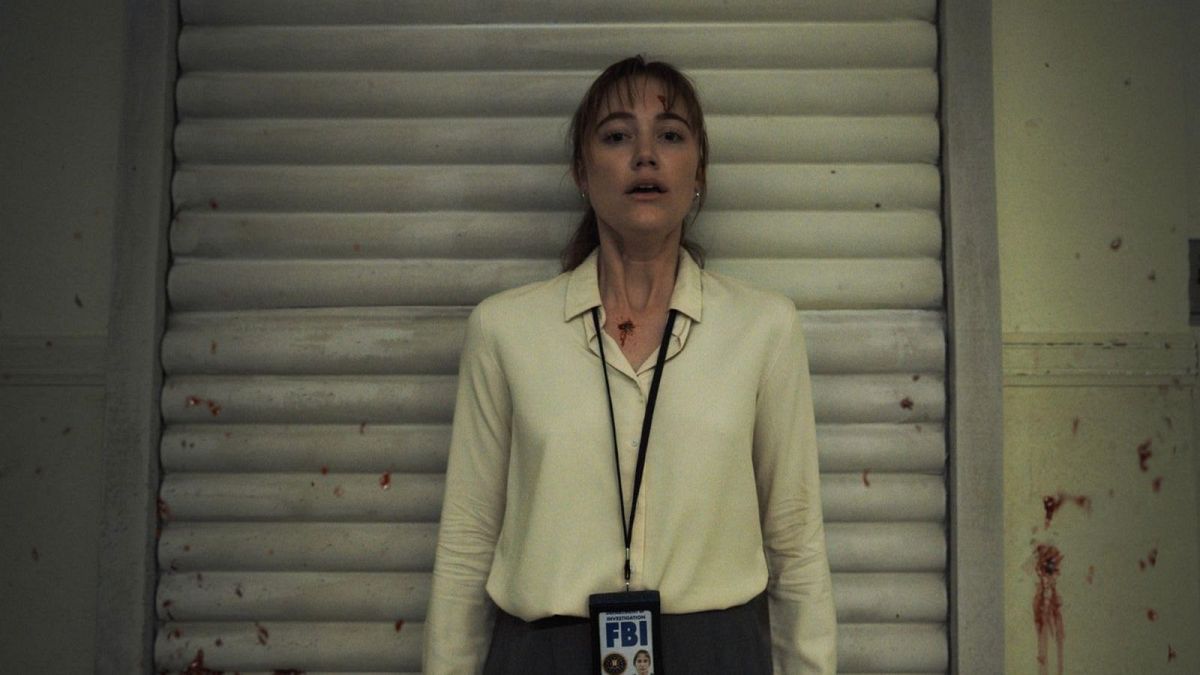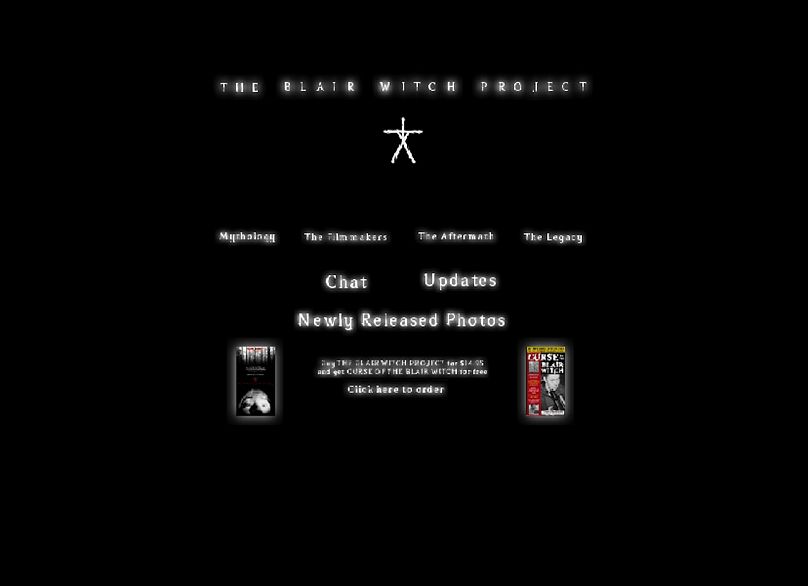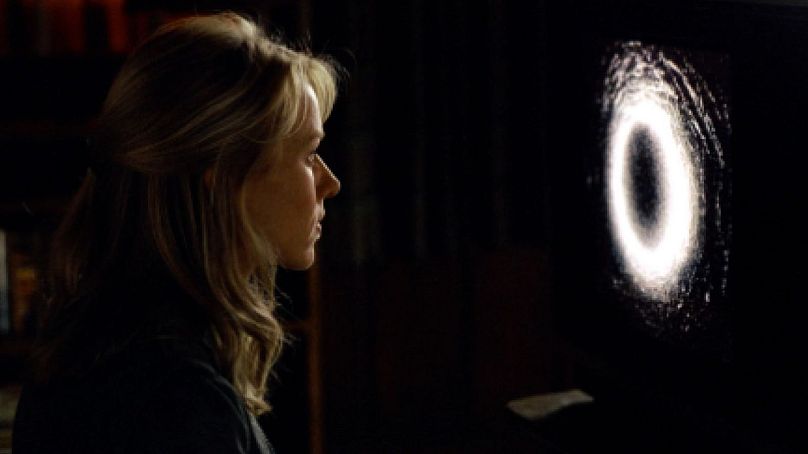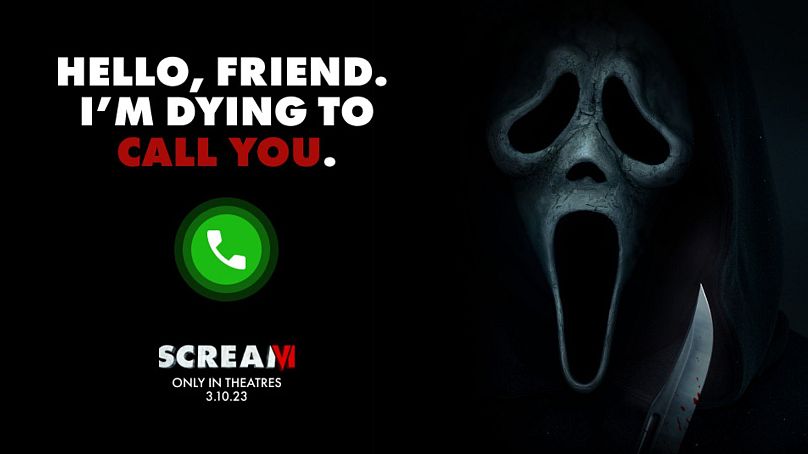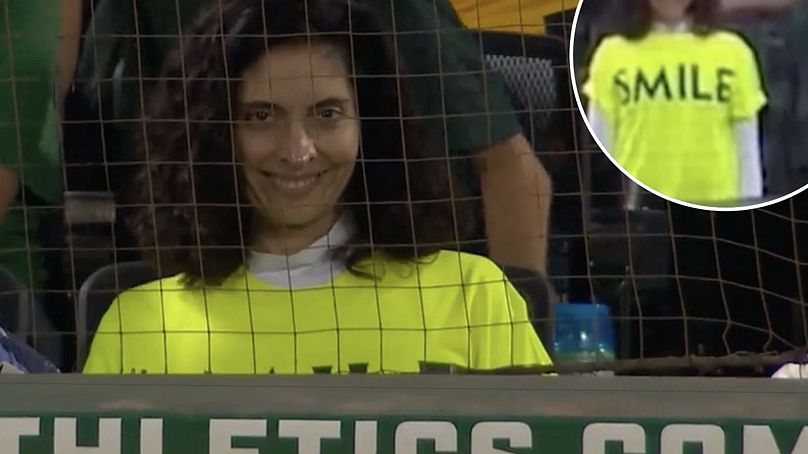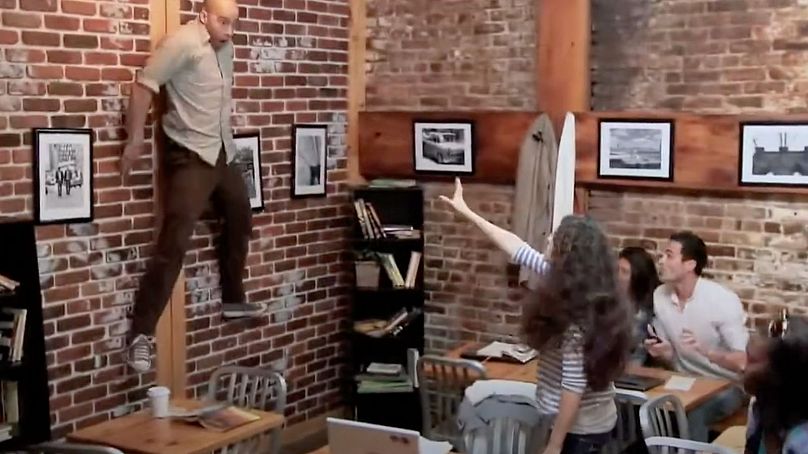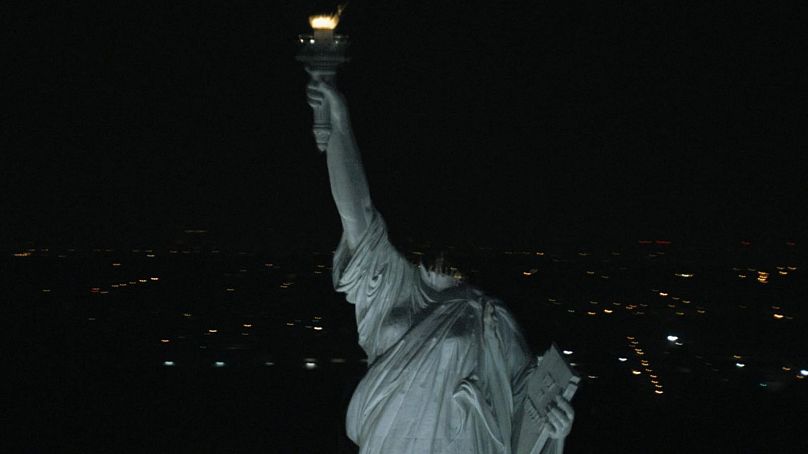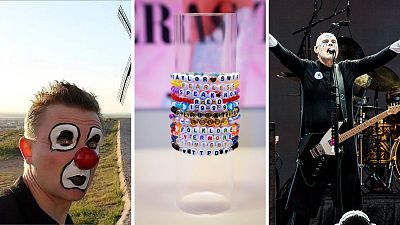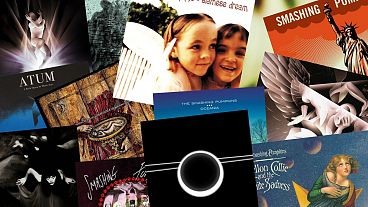Neon's promotional teasers for 'Longlegs' have gone viral for their creepy, reality-bending qualities. What other horror movies have successfully sold scares?
In the spring of 1999, word started to spread among college campuses in America about some missing students.
Leaflets were handed out, stories were planted in newspapers and rumours peppered through chat forums.
An official website was updated with theories, images of the students and mythology about what they had last set out to document: a haunting local legend known as the Blair Witch.
None of this was real, of course. It was an extremely clever marketing campaign for the found footage movie The Blair Witch Project, famously made on a shoestring budget of $60,000 (€55,429) and garnering $248.6 million (€229.6m) in return.
This innovative early use of the internet to create a viral campaign of intrigue, blurring the lines between fiction and reality, changed how movies were marketed forever.
While there have been many similarly creative (if less culturally defining) movie campaigns in the years since, it’s undoubtedly become much harder to craft the same level of hype without giving too much away.
Trailers tend to be over-stuffed and social media is awash with spoilers that are quickly followed by the next big thing, creating a brain-frazzled feeling of content overwhelm that makes it difficult to sustain curiosity about anything for more than five minutes.
But then along came Longlegs - Oz Perkins’ horror thriller about an FBI agent named Lee Harker (Maika Monroe), assigned to solve a series of gruesome murders by a serial killer known as Longlegs (Nicolas Cage).
Echoing the gloomy and oppressive ambience of movies like David Fincher’s Se7en and Jonathan Demme’s The Silence of the Lambs, the soft-filtered 90s setting of Perkins’ film allows for a return to simplicity through nostalgia-styled marketing.
Neon, the indie production company behind Longlegs, understood this potential - and ran with it.
In an interview with IndieWire, Perkins said, “[Neon] really responded strongly to the movie, the raw materials of the movie really excited them, the way it looks, the way it feels, the way it sounds. They asked me early on, ‘Do we have your permission to kind of go nuts?’ And I said, ‘What else are we doing here? Go for it. Do your thing.’”
Beginning with some eerily cryptic, untitled trailers that were drip-fed at the beginning of the year, the focus was immediately on creating an atmosphere of dread.
The breadcrumbs continued with an episodically updated website called ‘The Birthday Murders’. Collaged in bleached out crime scene images and designed to look like a basic, 90s-style website, it tells the backstory of Longlegs’ victims, a detailed dive into gruesome fictional lore.
Then there was the phone number that people could ring to hear Nicolas Cage, in a breathy drawl, say: “There she is! What's your name, Little Angel? Nice to meet you. Ohhh.... I'll be. Waiting.”
The genius of these things lies not only in their ability to stir suspense (we never see Nicolas Cage as Longlegs) but the ways in which it all gives a texture of reality to the movie's story, making us feel like a part of it.
We know Longlegs is a film, yet the essence of familiarity its promotions draw on, especially through old school website interfaces and dial tones, dislodges something deep-seated within us; like entering a liminal space that evokes both longing and nausea.
While last year’s Barbie reportedly spent $150 (€138) million on its marketing (and certainly reaped the rewards), horror movies require a more specific and subtle strategy that builds morbid curiosity through interaction rather than merchandise. It’s also a genre that, if clever, knows less is more - what’s left unseen is always scarier.
But will Longlegs live up to its terrifying teasers? We don't have long(legs) to find out - it's released in cinemas today (12 July).
In the meantime, here’s a look at some other memorable horror movie marketing campaigns.
The Ring (2002)
An American remake of the 1998 Japanese horror film Ringu, The Ring's premise is centred around a cursed video tape: those that watch it receive a phone call shortly afterwards telling them that they have seven days to live. So, probably best to avoid? Not if the marketing team got to you first.
Copies of the film's VHS were reportedly left in random places for people to find - underneath cinema seats, on car windshields and near events. Once watched, the videos would direct people to various websites, each filled with creepy stories from victims of the tape.
The tape's footage was also aired without any context between late-night TV shows in America. Samara must have been busy.
Scream VI (2023)
Another horror franchise that utilises the terror of phone calls from an unknown number! The most recent Scream reboot, starring Jenna Ortega, sees a group young adults being terrorised once again by Ghostface - this time in New York. While the marketing included some teaser footage of the masked killer hanging out on a subway and in a Bodega, the most popular gimmick was a website where you could enter a name and phone number to receive a personalised call from Ghostface: "Whats your favourite scary movie marketing?"
Smile (2022)
In the horror movie Smile, smiling is not a good thing. In fact, it might make you rethink smiling forever. A psychiatrist (Sosie Bacon) becomes cursed after witnessing a patient's suicide and starts to see a demonic smile that appears to be contagious and only leads to more bad things. To market this, Paramount planted actors across various live sporting events in America, having them maniacally smile directly at the cameras when it focused on the audience in half-time. "We wanted to feel like it was a discovery where people didn’t feel like they were being marketed to," lead marketer Danielle Kupchak told Boardroom.
A similar thing was later done with the killer robot doll M3GAN.
Carrie (2013)
A remake of Brian De Palma's brilliant adaptation of Stephen King's 1974 novel "Carrie", it tells the story of a young, abused girl (Chloë Grace Moretz) with powers of telekinesis. While Kimberly Pierce's version wasn't a hit with critics, it did feature a clever marketing stunt that played into the popular prank culture of the early 2010s. Cameras were set up in a New York cafe and two performers prepped. After a man clumsily spills coffee on a young woman's laptop, she angrily shouts at him before activating her powers of telekinesis to throw him up against the wall, shocking onlookers. She then screams, causing all the books and pictures falls to the floor. Silly, but effective!
Cloverfield (2008)
Much like The Blair Witch Project, Cloverfield was a pioneer of online movie marketing. A found footage movie about a giant monster attacking New York City, its format worked especially well for once again blurring the lines between reality and fiction.
Initially, a title-free clip from the film would play beforeTransformers (2007) screenings, showing a party rudely interrupted by a monster attack. Most impressive, though, was its incredible attention to detail with world building online. MySpace pages were created for main characters, an official website released clues and stills from the film, and fictional franchises and companies were even given fake websites and advertising, like the soft drink 'Slusho!'
It got audiences so invested in trying to piece together the mysteries of the Cloverfield universe, many were even sad when the actual film came out. While well received, sometimes the shared anticipation of something is still the best part.
Longlegs is out in theatres today.












